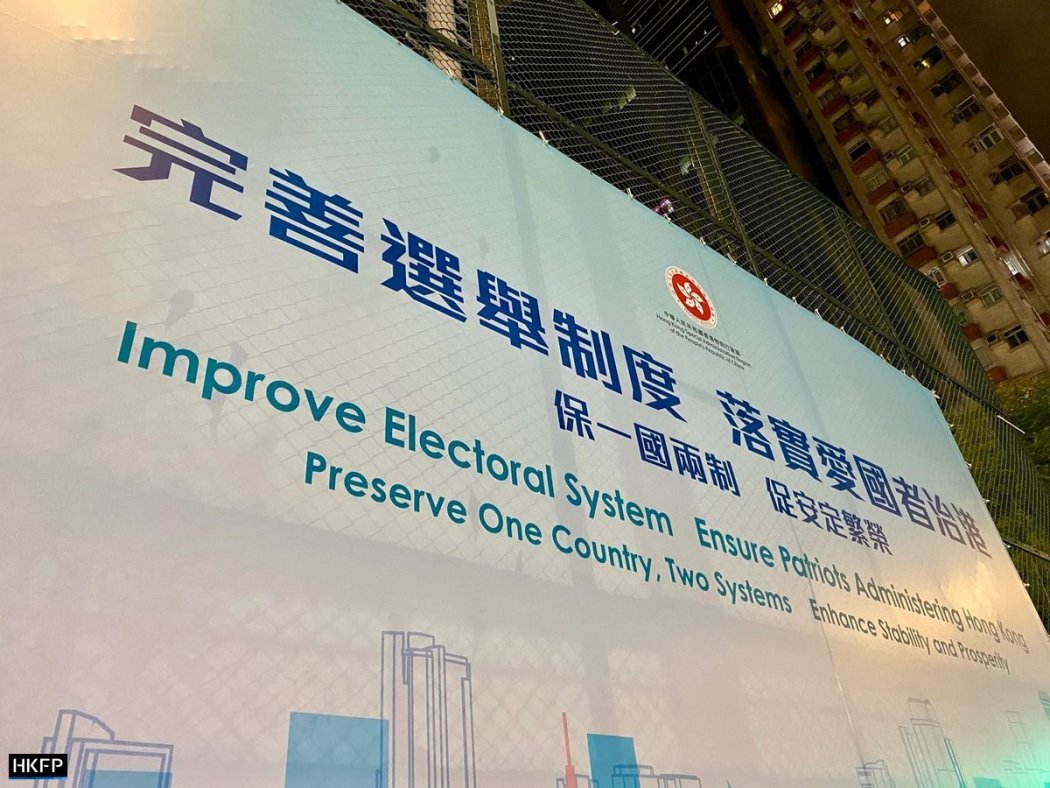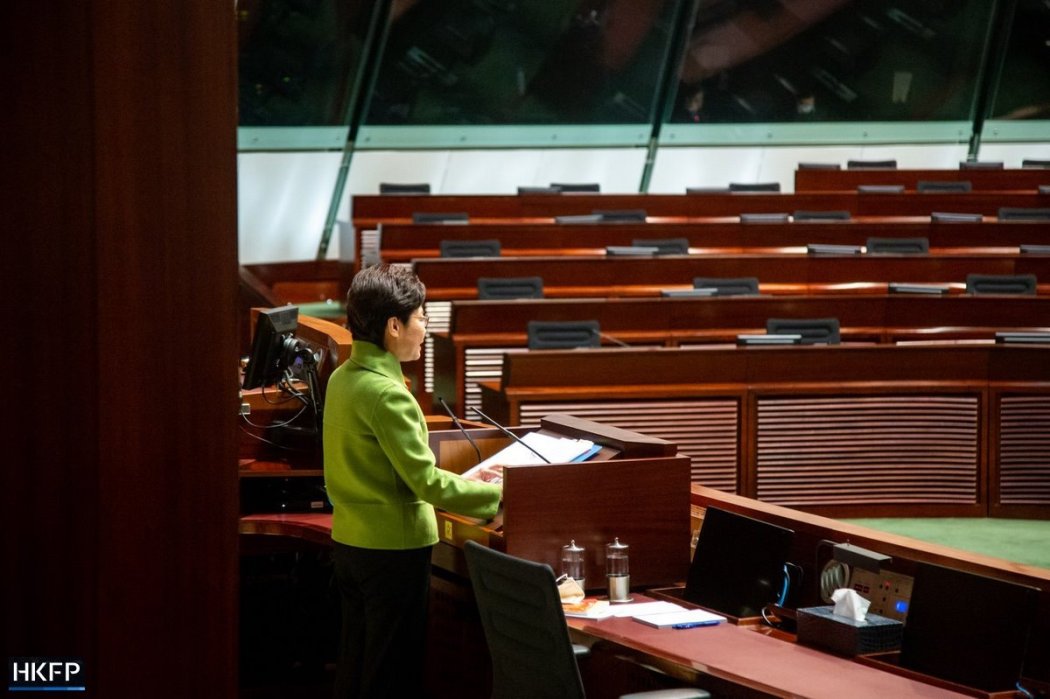On March 30, Beijing announced major changes to the electoral system in Hong Kong. These changes are designed to align Hong Kong’s legislature and executive to produce an “executive-led government,” long the central government’s stated intention for the HKSAR.
According to the new policy, the Election Committee selects 40 Legislative Council (LegCo) members, and candidates for the 30 functional and 20 geographic constituency seats of LegCo. The police and the Committee for Safeguarding National Security (CSNC) vet candidates for Election Committee membership and for the office of the Chief Executive (CE). The Candidate Eligibility Review Committee (composed of a small number of Principal Officials) then confirms this list, beyond appeal. The CSNC serves as the gate keeper. Our Chinese Communist Party (CCP) secretary, Luo Huining, an advisor to the CSNC, participates in this process. The Liaison Office he heads will support him in this role.

These changes put the Chinese Communist Party at the core of Hong Kong’s political system. They provide for an expanded role for China’s Liaison Office in Hong Kong, going well beyond “united front work,” the party’s traditional focus here. The new responsibilities will require a very substantial expansion of the manpower and physical size of the Liaison Office.
First, the CCP in Hong Kong will vet candidates to fill the positions in the Election Committee, the Legislative Council, the Chief Executive, and Hong Kong’s Principal Officials, totalling at least 1,612 positions. The party already vets some of these.
Vetting is a serious business carried out by party organisation departments. The Liaison Office’s organisation work portfolio has just expanded. The party will look at perhaps three or more candidates per position to fill the vacancies, including potential candidates for the 20 elected LegCo seats.
Traditionally, party organisation departments produce and maintain lists of qualified individuals to hold positions over which the party has vetting authority. This process extends the reach of the CCP in Hong Kong well beyond its initial strategy of controlling “the commanding heights” of government down into Hong Kong society.
In education, for example, the CCP will show renewed interest in the appointment of university presidents and council chairs, because the party may appoint people in these positions to the Election Committee or LegCo.
Given Hong Kong’s practice of relying on retired civil servants to fill principal official positions, in its search for successors, the party has considered our Administrative Officers. The recent attacks on current permanent secretaries in the party-controlled press, however, indicate official disenchantment with AOs.
Accordingly, we should expect the party to include in its list of successors civil servants of other grades, especially the disciplined services, and loyalists outside the civil service.

Second, the party in Hong Kong needs to coordinate and balance the conflicting interests of local and mainland organisations (like the China Law Society) now pulled into the leadership selection process. The party also needs to coordinate and balance interests within Hong Kong, as the electoral system changes dilute the clout of traditionally vested interests (tycoons, Heung Yi Kuk, etc.).
Within the Election Committee those members chosen by election are balanced by an equal number of appointees, many from mainland organisations. This process, which the party undertakes on the mainland, brings these conflicts of interest inside the CCP for resolution.
This reduces transparency for citizens and makes the appointed Hong Kong authorities less accountable to the local public. The process of strengthening bureaucratic (internal) accountability and weakening political (external) accountability has been going on for some years but was accelerated during the Carrie Lam administration.
Third, the CCP in Hong Kong needs to discipline this much larger group of officials/candidates under its management. On the mainland officials are mostly party members, so the party uses its own disciplinary machinery. In Hong Kong, where party building is not yet well developed, the party must use other tools.
These include using the Hong Kong and mainland legal systems (in Hong Kong, the Department of Justice, ICAC, and eventually the courts, operating within the laws of Hong Kong). High profile arrests, prosecutions, and jailing of prominent opposition politicians may be seen in this light. Authorities use the law to punish wrongdoing and to intimidate others.

The party also uses material incentives to impose discipline, including granting and withholding opportunities on the mainland. The CCP uses the media to criticise behaviour it finds offensive. Party authorities will expand their reach through social media, and attempt to guide Hong Kong government departments (including RTHK) to produce a unified message.
The newly established Bauhinia party may also serve the function of keeping official appointees in line.
Maintaining discipline over such a relatively large group without the ties of party membership throws up some challenges. Among the larger group are many part-timers (amateurs). The Hong Kong government appoints them to various committees (fight crime, fire safety, etc.) and they serve out of a sense of civic duty.
The new changes, however, require a greater commitment of time, competence, and loyalty. Are they up to the challenge? Indeed, the changes to Hong Kong’s political system make huge new demands on political amateurs, who initially may be unwilling.
The party prefers political amateurs, however, because they mostly have little capacity to mobilise the community, say, to win elections. DAB politicians are an exception.

Fourth, the party in Hong Kong continues to lead united front work, mobilising support for central government policies. In this they have the enthusiastic support of the Hong Kong government.
This will be important for holding some Election Committee constituencies (engineering, accountancy, legal, education, etc) and the 20 directly elected LegCo seats. Legitimacy depends on this.
National People’s Congress Standing Committee member Tam Yiu-chung has said that the chief convener of the Election Committee, a state leader, will have transcendent status above the Chief Executive. This is necessary so that he (CY Leung?) can represent the central government to solve any election issues that may arise.
The chief convener is charged with the important task of implementing “‘executive-led government” here. To be sure, the Chief Executive continues as the public face of the Hong Kong government. But real power in Hong Kong resides less with the chief convener or the chief executive, than with our party secretary, Luo Huining, and party central in Beijing.
Support HKFP | Policies & Ethics | Error/typo? | Contact Us | Newsletter | Transparency & Annual Report | Apps
Help safeguard press freedom & keep HKFP free for all readers by supporting our team
| HKFP is an impartial platform & does not necessarily share the views of opinion writers or advertisers. HKFP presents a diversity of views & regularly invites figures across the political spectrum to write for us. Press freedom is guaranteed under the Basic Law, security law, Bill of Rights and Chinese constitution. Opinion pieces aim to point out errors or defects in the government, law or policies, or aim to suggest ideas or alterations via legal means without an intention of hatred, discontent or hostility against the authorities or other communities. |

More HKFP OPINION:
HKFP has an impartial stance, transparent funding, and balanced coverage guided by an Ethics Code and Corrections Policy.
Support press freedom & help us surpass 1,000 monthly Patrons: 100% independent, governed by an ethics code & not-for-profit.










